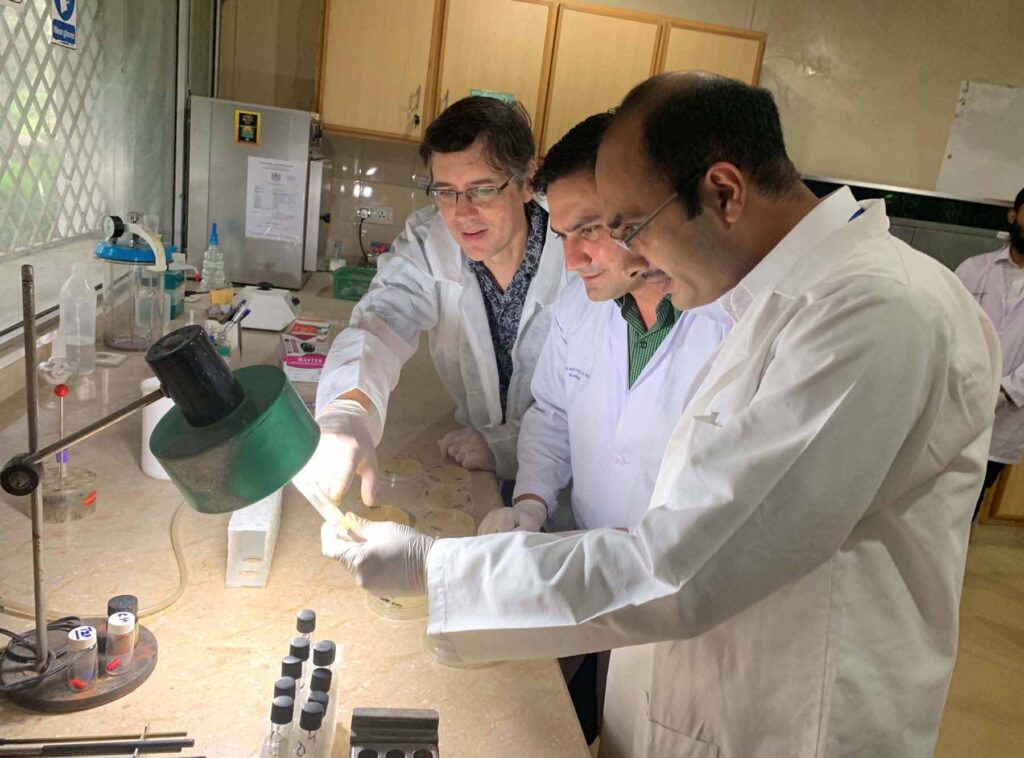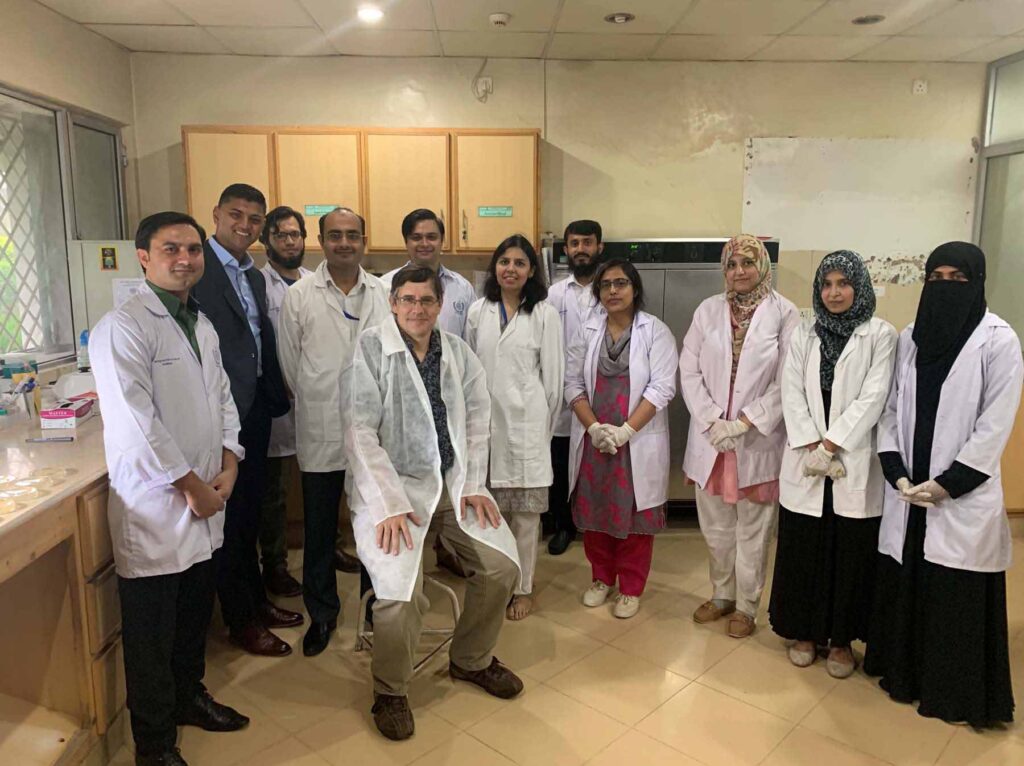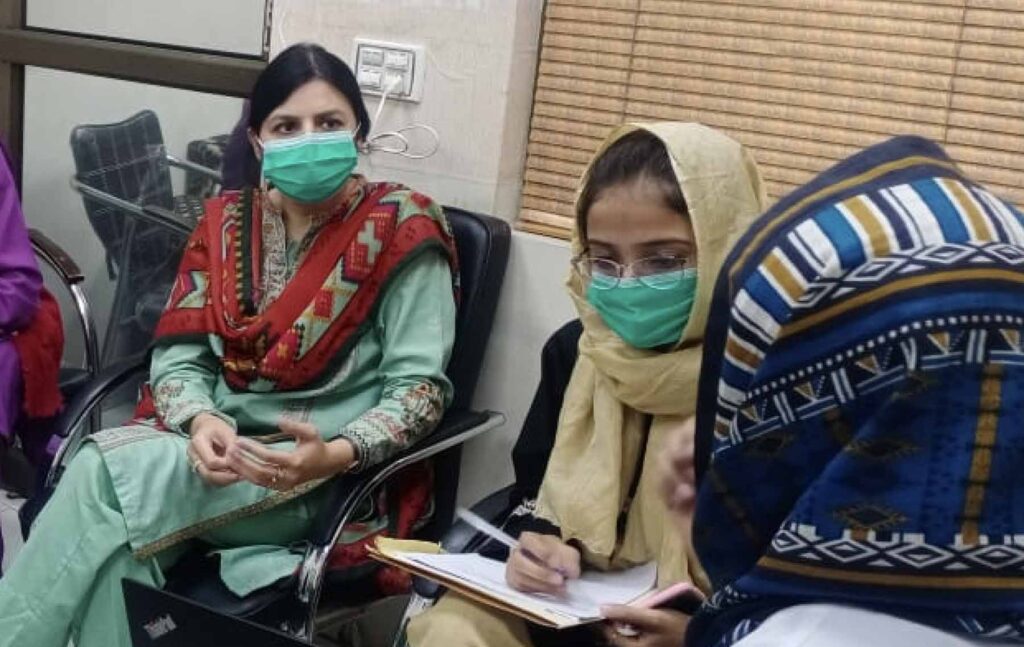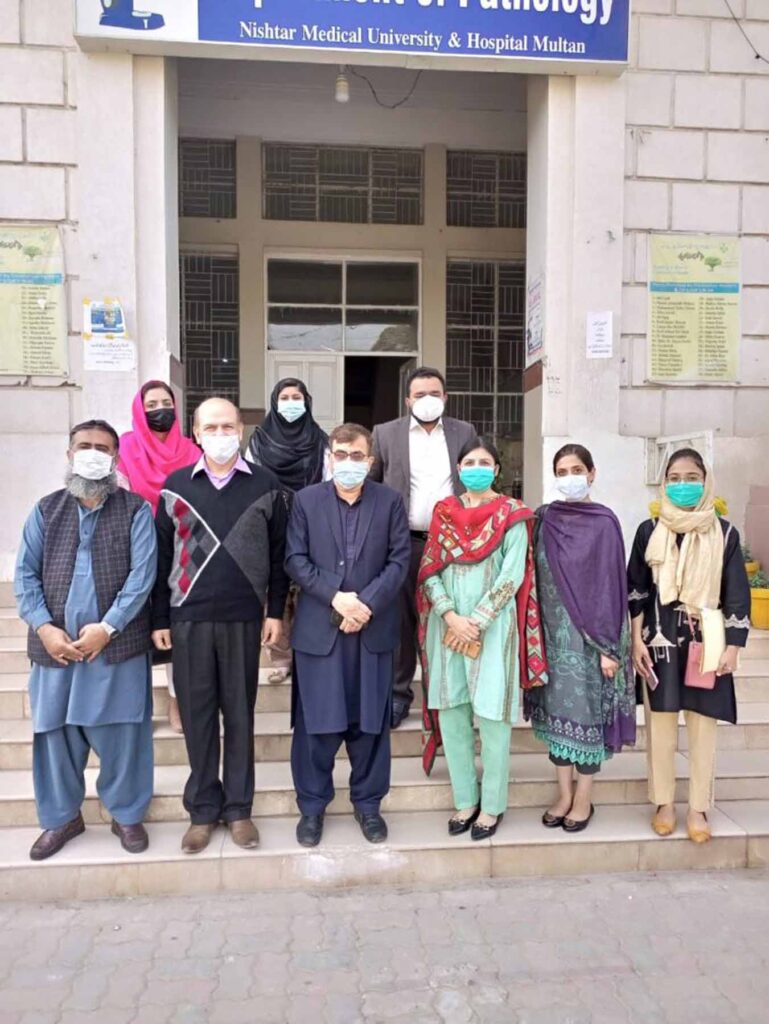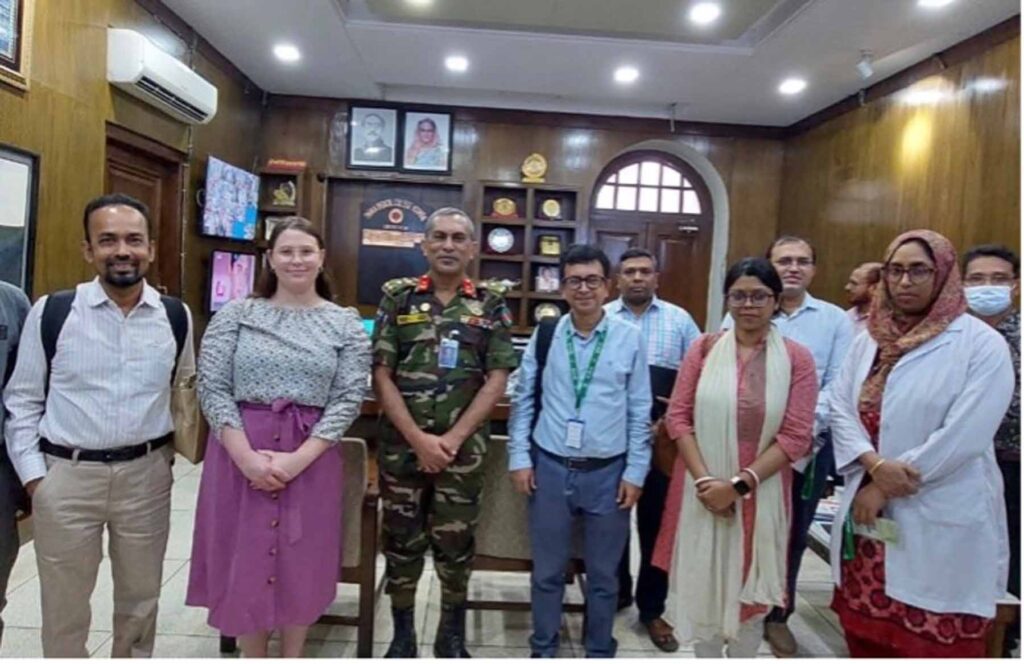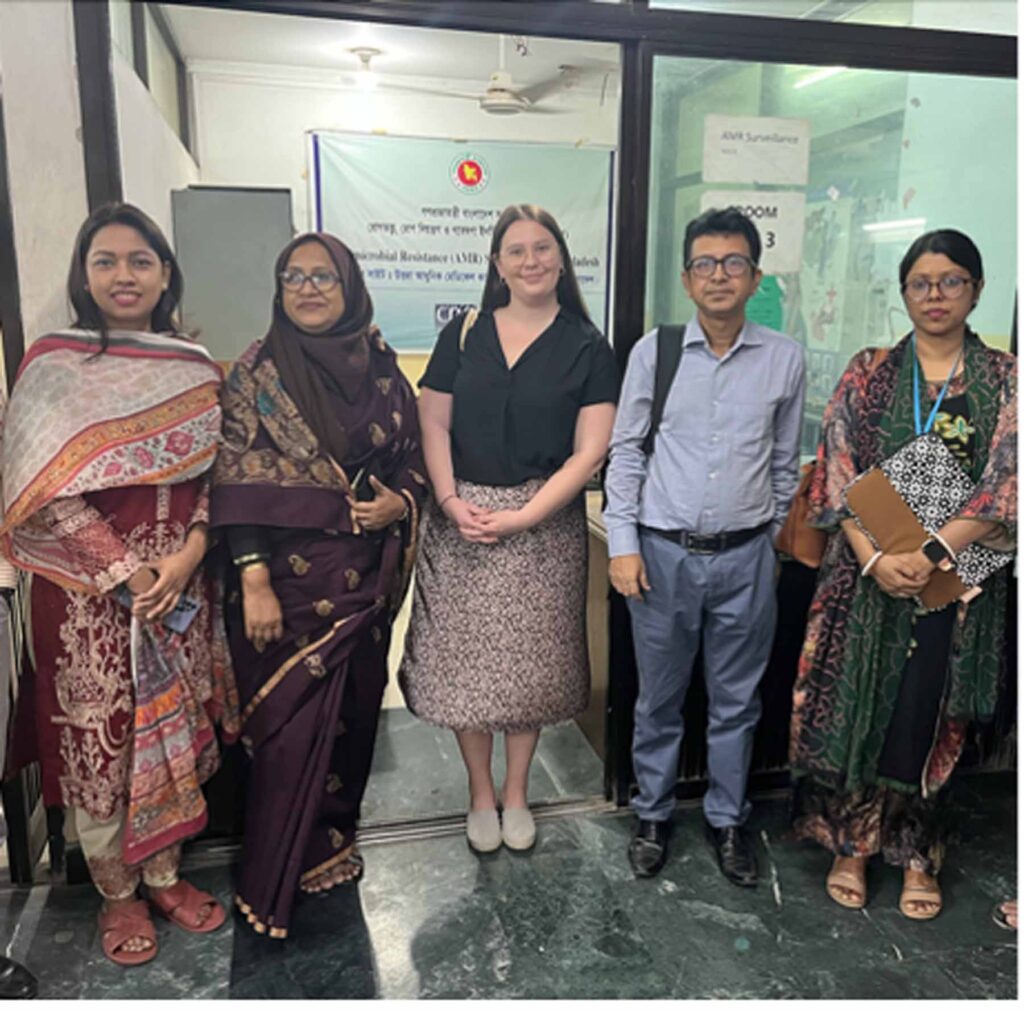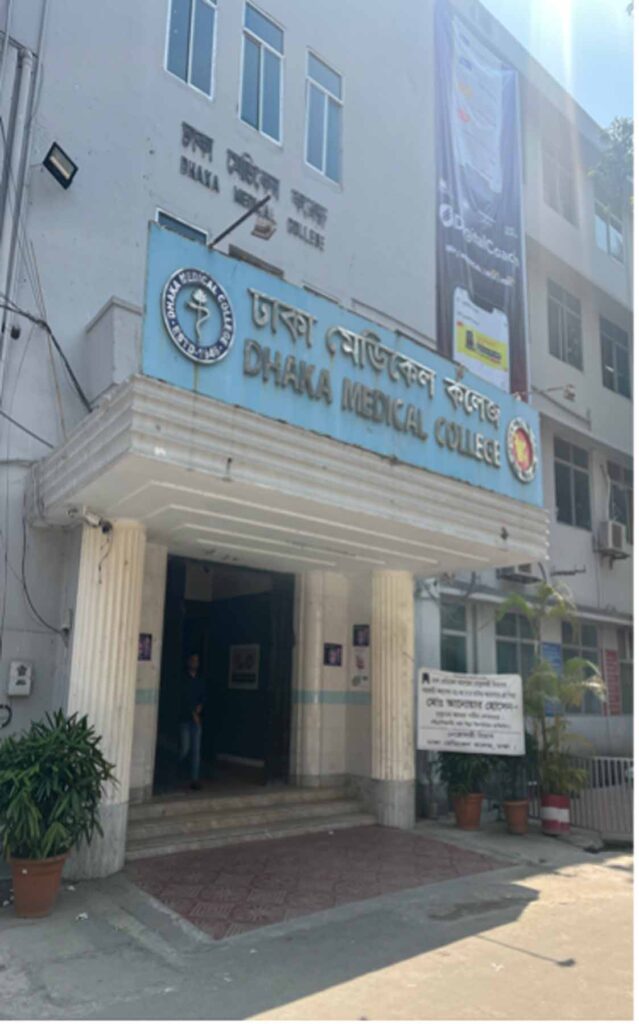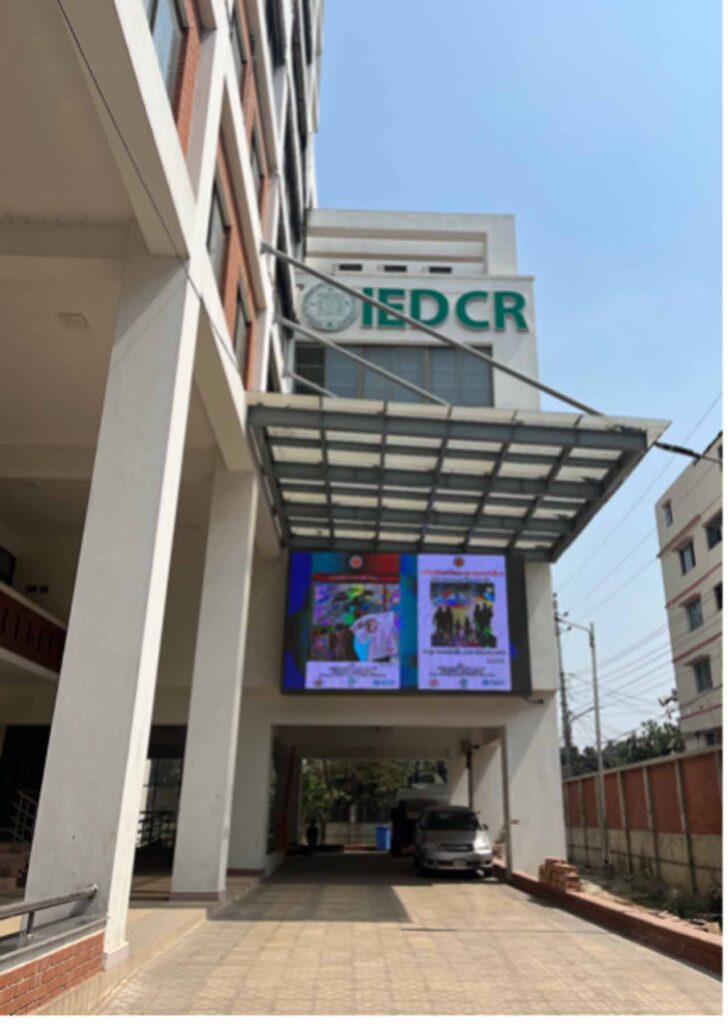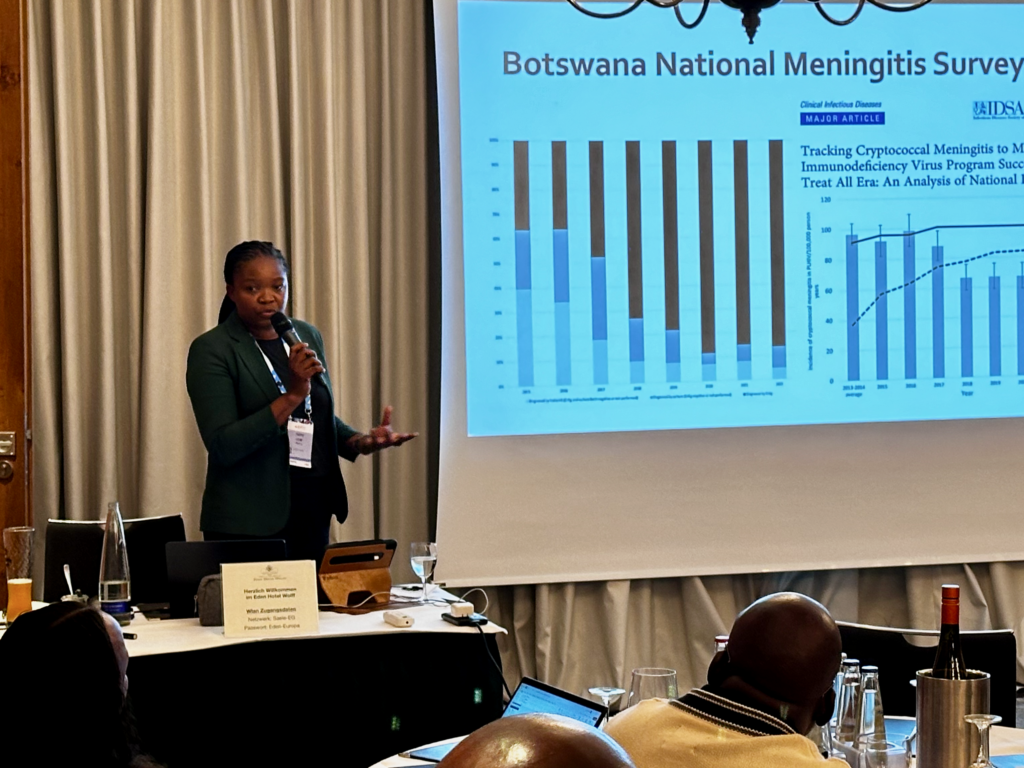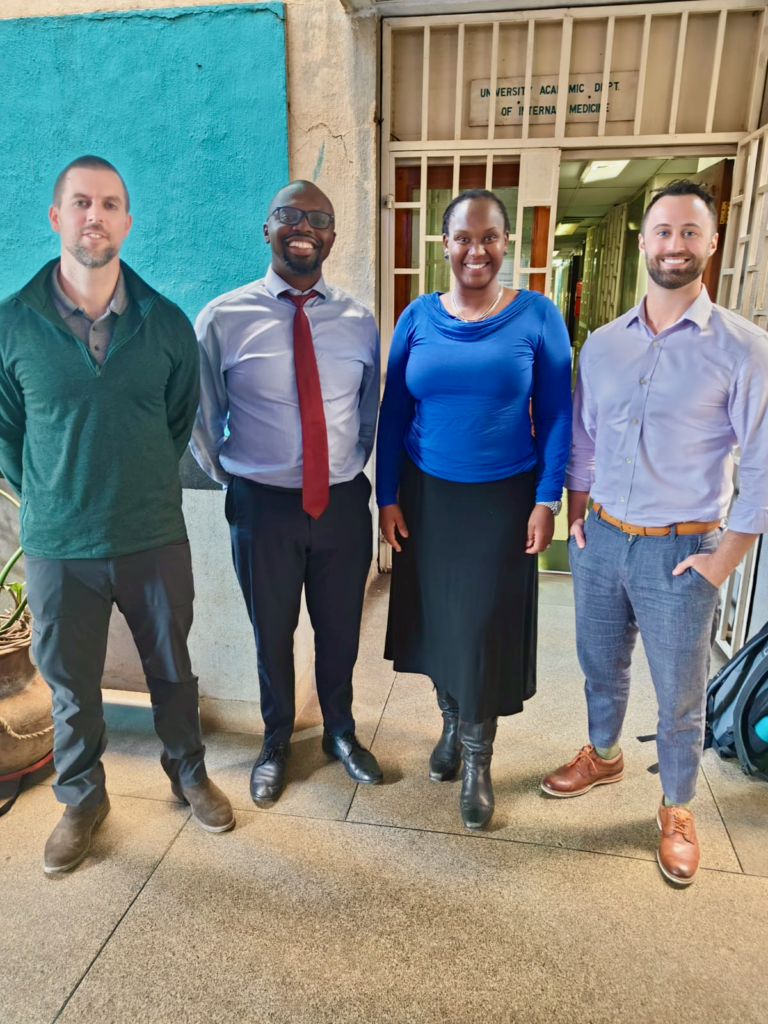In 2009, the world discovered a new fungal disease known as Candida auris. Though, the first case of C. auris in Pakistan was suspected to be in 2008, resulting in a global phenomenon of a highly infectious, disease-causing pathogen with growing antimicrobial resistance. For the past couple years, Integral Global Consulting (IGC) has worked on several projects with CDC with the goal of reducing the burden of C. auris in Pakistan. These projects include laboratory personnel training and the facilitation of workshops and communication for large stakeholders. IGC recognizes the need to expand efforts around mycotic infections and will continue to support CDC and their initiatives in reducing hospital-based infections.
Project 1
C. auris Laboratory Training in Pakistan 2020
IGC developed a laboratory survey tool to determine whether laboratory facilities in Pakistan have the capacity to detect C. auris. Surveillance was piloted in three initial hospital sites in Islamabad. IGC worked with CDC to develop standard operating procedures (SOPs) for laboratory diagnosis, surveillance, and reporting. This was a new and unique project that has not been done before and helped shed light on the relationship between laboratory practices and the burden of disease in hospitals. These efforts also assisted with capacity building to better detect C. auris.
2021-2022
C. auris Collaboration and Facilitation in Pakistan
In 2021, IGC was awarded a cooperative agreement with CDC to provide logistical support to the National Institute of Health (NIH) in Islamabad. Both IGC and the NIH collaborated to support antimicrobial resistance prevention activities throughout the country. These activities align with CDC’s mycotic goals to continue developing laboratory workforce capacity. IGC has aided NIH through communication and facilitation measures for laboratory assessments and trainings.
2023
Candida Auris in Bangladesh
During year two of this project, a preliminary assessment of the Institute of Epidemiology Disease Control and Research (IEDCR)’s capacity to conduct fugal disease surveillance was conducted in Dhaka, Bangladesh. IEDCR is Bangladesh’s national institute for outbreak investigation and disease surveillance. To complete this evaluation, IGC worked closely with IEDCR’s Department of Microbiology and site visits were conducted at Uttara Adhunik Medical College and Dhaka Medical College Hospital. The assessment provided valuable context to the current status of fungal disease and AMR surveillance in Bangladesh. Additionally, the assessment evaluated the organization’s fungal disease diagnostic capability, with a particular focus on candida auris. The final report has been used by CDC to inform decisions on capacity building activities and priority areas of focus.
2024
Fungal Opportunistic Infections in Africa
In the fourth year of IGC’s cooperative agreement with CDC, IGC pivoted to address the increasing need for support addressing HIV fungal opportunistic infections in African countries hit hardest by the HIV epidemic. Fungal opportunistic infections such as cryptococcal meningitis (CM) are responsible for 15-20% of all HIV-related mortality, resulting in an estimated 112,000 deaths per year, the majority of which occur in sub-Saharan Africa. WHO has released updated guidance on a package of care to reduce these preventable deaths through low-cost interventions such as cryptococcal antigen (CrAg) screening. Through this cooperative agreement, IGC worked on the ground with key country partners and ministries of health in Kenya and Tanzania to provide technical assistance in national implementation of these interventions. IGC also has supported the design and facilitation of country situation analyses and M&E assessments to provide key datapoints to inform implementation and advocate for the resources needed to ensure greater access to life-saving interventions.



